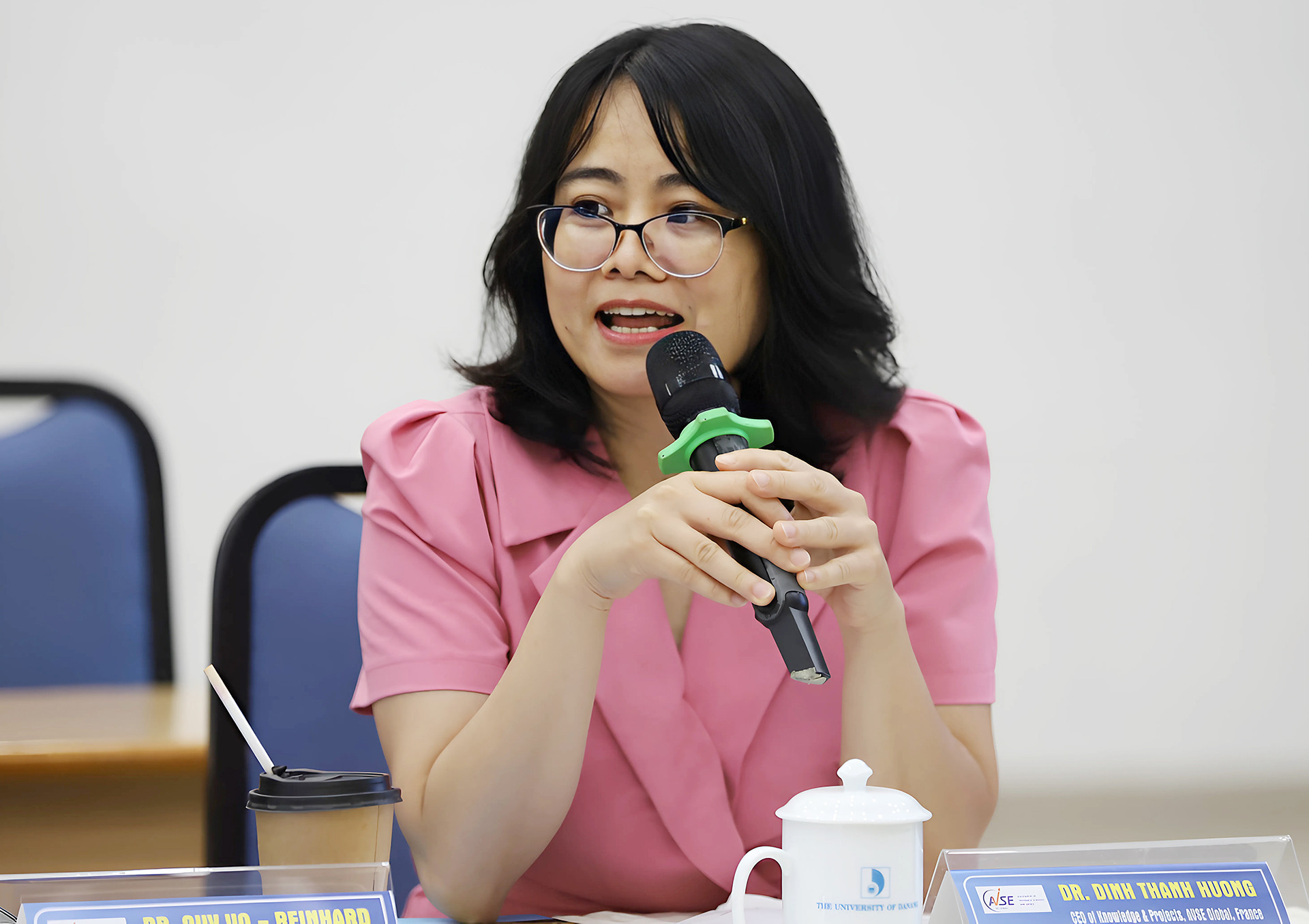
All share a common aspiration: HCM City will become a smart, livable city, harmonious with nature, and distinct in its identity amid globalization.
As the Party and State implement major policies to create new momentum and strength for the nation, HCM City, as the economic spearhead, must swiftly address its unique challenges with a long-term, comprehensive and pragmatic vision.
Dinh Thanh Huong, PhD: Respecting experts’ individuality
Huong suggested tailoring incentives to different groups. She knows some top scientists who do not worry about finances when returning, sometimes bringing substantial funds. But there are younger people who are still in the development stage of their careers. They need to be paid reasonably.
Huong suggested “attracting talent with national pride and patriotism”. This is what South Korea and Israel have succeeded with.
She emphasized “respecting experts’ individuality.”
Individuality, for her, has three aspects. “First, some scientists propose novel ideas that no one has heard or grasped. So, they need a mechanism to test their ideas. Their opinions must be respected, even if the ideas remain unclear and nobody has imagined of. Their individuality lies in their ideas.
Second, corporate culture. She said she had heard that in Vietnam, scientists and businesses need to have certain relationships, or they will face difficulties in development progress. But Vietnam is changing rapidly.
For returnees, their behaviors may differ. They may not fully grasp Vietnamese norms after years abroad, adopting international mindsets and actions.
“Instead of judging these differences, we should be open, as long as we share development goals,” Huong said.
The third “individuality” feature is recognizing personal contributions.
“While we work with collective intelligence, and some achievements become state or institutional assets, openly honoring individual contributions and efforts elevates scientists’ and experts’ individuality,” she said.
Tran Tue Tri: returnees need flexibility
Tran Tue Tri, co-founder and senior advisor at Vietnam Brand Purpose, held senior roles at multinationals like Unilever, Samsung, and P&G. After 15 years of living and working in the Philippines, Thailand, and Singapore, she returned to Vietnam with rich experience and passion.
For Tri, attracting talent back is a difficult task. HCM City has launched many talent attraction programs, but the effects remain modest.
“Salaries matter, but they’re not everything. The issue lies in cultural integration,” she said.
Tri said the Chinese 1,000-talent program three decades ago laid the foundation for its rise in science and technology. It attracted not only Chinese in the US and Europe, but also foreigners.
China’s approach was flexible: talent, especially professors, did not need to return to China immediately but could contribute via short-term projects. This allowed talented scientists to maintain overseas careers while contributing to China’s development.
“Start with short-term projects to test fit and integration. That’s more critical than mandating a full return,” she said.
She added that private enterprises, not just the public sector, should attract talent.
“The private sector should adopt fresh, proactive policies to call for talent,” Tri noted.
She warned against misjudging talent value: “Not everyone returning is excellent. The problem is what they’ve learned and achieved. If this cannot be clarified, it will create unfairness. It may happen that local staff contribute much, but earn less than returnees.”
Returnees also need flexibility and adaptability. “Don’t apply exactly foreign work styles in Vietnam. Select what’s good and fits Vietnamese culture. Overseas scientists don’t return to Vietnam to be admired.”
“Returning from Singapore, I saw clear differences. But I just keep what is good and apply what fits Vietnamese conditions instead of expecting Vietnam to offer exactly the same things,” she said.
“I need to start by recognizing Vietnam’s strengths, then bring my strengths to improve the organization. Don’t assume Vietnam is inferior and abroad is superior. That’s wrong,” she added.
“Doing so makes locals feel understood, and you’re here to create value, not prove something. The ultimate goal is collective value,” Tri said.
Conversely, locals must understand why returnees are here and embrace a learning, open mindset, not resistance.
“That’s crucial for HR management and corporate culture,” Tri said.
Nguyen Thao